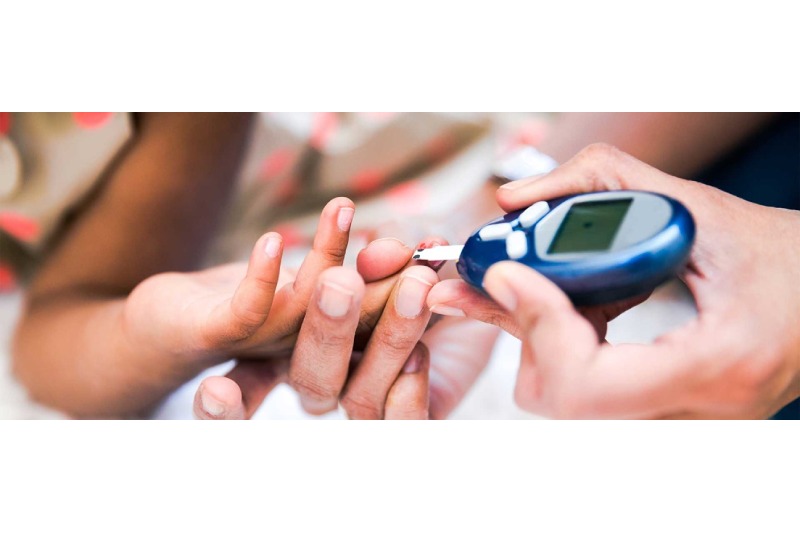Living with Type 1 diabetes requires daily care and vigilance, but with the right strategies, you can lead a fulfilling and healthy life. From balancing blood sugar to managing insulin, here are essential tips to support daily life with Type 1 diabetes.
1. Stay Consistent with Blood Sugar Monitoring
- Regular Testing: Testing your blood sugar multiple times a day helps you understand how different foods, activities, and insulin doses affect you. Aim for consistent monitoring, especially before meals, after exercise, and at bedtime.
- Use Technology to Track Levels: Consider using a continuous glucose monitor (CGM) or a digital glucose meter that can store readings, track patterns, and even send alerts for low or high blood sugar. Monitoring over time can help you better predict and manage blood sugar changes.
2. Master Your Insulin Management
- Understand Your Insulin Types: Type 1 diabetes management often involves both basal (long-acting) and bolus (short-acting) insulin. Understanding when and how to administer each type is key to balanced blood sugar levels.
- Adjust for Meals and Exercise: Doses often need to be adjusted based on factors like the carbohydrate content of your meal or the intensity of physical activity. Work closely with your healthcare provider to determine how much insulin to take and when.
3. Make Healthy Food Choices
- Focus on Low-Glycemic Foods: Foods that are low on the glycemic index, such as whole grains, vegetables, and lean proteins, tend to cause smaller blood sugar spikes. Aim to include fiber-rich foods that promote stable blood glucose levels.
- Practice Carb Counting: Carb counting is essential for Type 1 diabetes management, as carbohydrates directly impact blood sugar. Accurately tracking your carb intake allows you to match your insulin dose and prevent extreme fluctuations.
- Balance Your Plate: Incorporate a mix of carbs, proteins, and fats in each meal for gradual digestion and steadier energy. Avoid skipping meals to prevent unpredictable blood sugar changes.
4. Incorporate Regular Exercise Safely
- Choose Activities You Enjoy: Exercise is beneficial for managing blood sugar, but it’s crucial to find activities you enjoy and can maintain regularly. Try walking, cycling, swimming, or yoga as low-impact, sustainable choices.
- Monitor Blood Sugar During Exercise: Exercise can lower blood sugar, so it’s important to monitor your levels before, during, and after activity. Keep snacks or glucose tablets on hand to prevent hypoglycemia.
- Adjust Insulin for Intense Workouts: Vigorous exercise may require a reduction in your insulin dose. Work with your healthcare provider to find the right adjustments for your activity level.
5. Manage Stress and Sleep Well
- Use Stress-Relief Techniques: Chronic stress can elevate blood sugar levels due to the release of cortisol. Practice relaxation techniques like deep breathing, meditation, or spending time in nature to reduce stress.
- Prioritize Quality Sleep: Poor sleep can make it harder to control blood sugar. Aim for 7-9 hours each night and establish a calming bedtime routine to improve your sleep quality.
6. Prevent and Prepare for Blood Sugar Extremes
- Have a Low Blood Sugar Kit: Carry a small kit with glucose tablets, juice, or snacks in case of hypoglycemia. Always have a quick source of sugar and an emergency contact card available.
- Know the Signs of High and Low Blood Sugar: Familiarize yourself with the symptoms of both high and low blood sugar, like shakiness, dizziness, or headaches. Acting quickly when you feel these symptoms can prevent complications.
7. Connect with Support and Resources
- Find Support Networks: Living with Type 1 diabetes is easier with support. Joining a support group, whether online or in person, allows you to share experiences, gain insights, and find encouragement from others who understand the challenges.
- Work Closely with Healthcare Providers: Regular visits with your doctor, endocrinologist, or diabetes educator can help you refine your management plan and stay updated on new treatment options and lifestyle tips.
8. Stay Informed on New Treatments and Technologies
- Consider Insulin Pumps and CGMs: Insulin pumps and continuous glucose monitors (CGMs) are valuable tools that can simplify daily management. Ask your healthcare provider about the latest devices that could benefit your Type 1 diabetes care.
- Keep Up with Diabetes Research: The field of diabetes management is constantly advancing. Stay informed on new treatments, medications, and lifestyle strategies that can improve your quality of life.
Final Thoughts
Managing Type 1 diabetes requires a proactive approach, but with consistency, planning, and support, you can lead a balanced and fulfilling life. By closely monitoring blood sugar, practicing effective insulin management, making healthy lifestyle choices, and seeking support when needed, you can successfully navigate the daily challenges of Type 1 diabetes.

 Diabetology2 weeks ago
Diabetology2 weeks ago
 Diabetology2 weeks ago
Diabetology2 weeks ago
 Diabetology1 week ago
Diabetology1 week ago
 Diabetology1 week ago
Diabetology1 week ago
 Diabetology3 hours ago
Diabetology3 hours ago













